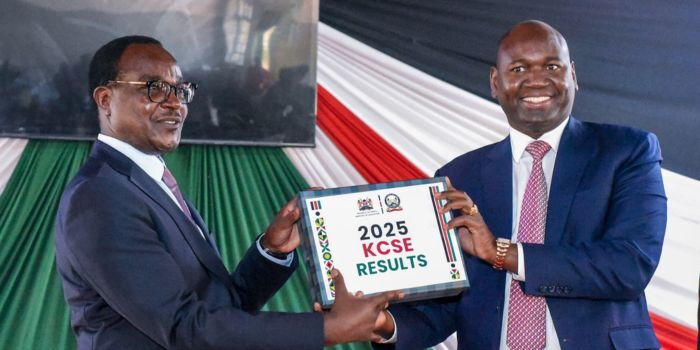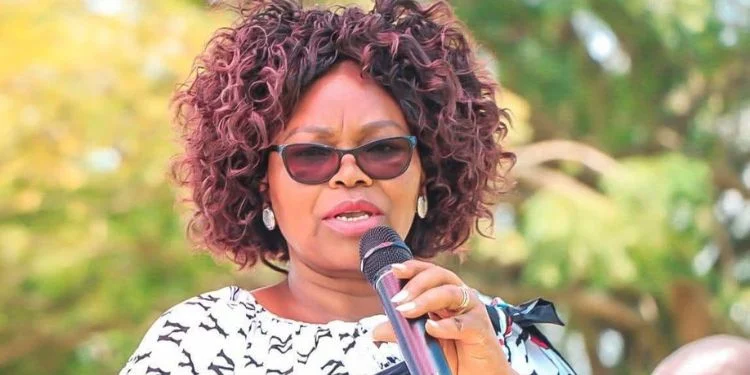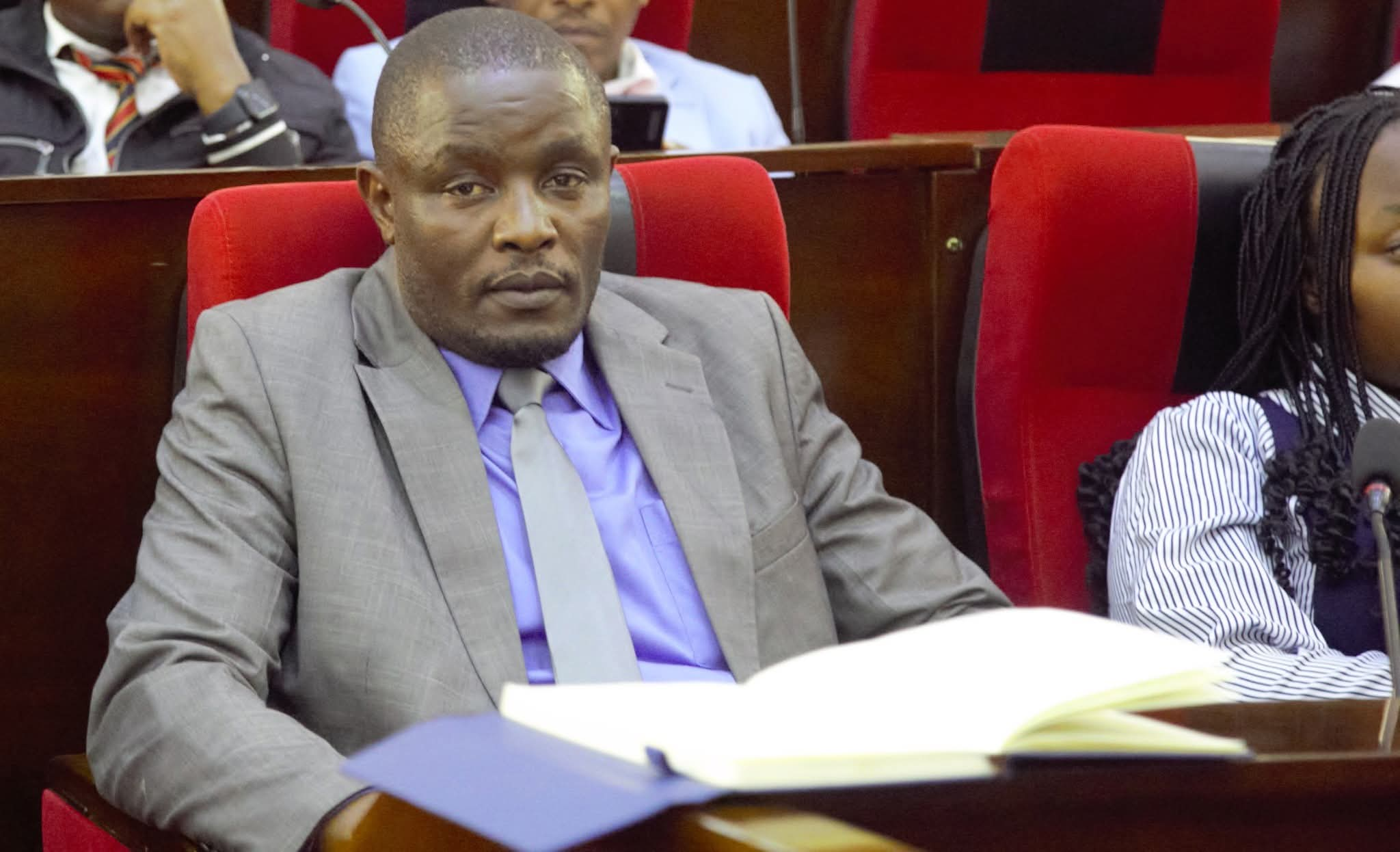By Roy Hezron
Teachers Service Commission (TSC) has maintained that over 300,000 unemployed teachers should go through the ongoing upgrading programme in order to be Competency-Based Curriculum (CBC) compliant, revealing that the Commission will not automatically absorb them even when they complete the nine months upgrading programme.
TSC Director of Quality Assurance and Standards (QAS) Dr. Reuben Nthamburi has revealed that the Commission has been receiving cases of teachers who are posted to schools and are unable to teach the CBC classes hence need for unemployed teachers going for the upgrading training programme.
“As a Commission as indicated, when we post a teacher now who is not CBC compliant, we have a lot of cases that are coming up because the teacher is not able to teach Grade 1 to 5 because is not CBC compliant. So what has been decided is that these teachers who are out there they need to go through this training,” said Dr. Nthamburi.
Dr. Nthamburi who represented the Commission’s Chief Executive Officer Dr. Nancy Macharia, was addressing the Senators of the Senate Committee on Education chaired by Dr. Alice Milgo and Kenya Institute of Curriculum Development (KICD) on CBC sensitization in Naivasha recently.
Dr. Nthamburi clarified that the upgrade programme is completely different with the recently rolled out Teacher Professional Development (TPD); reiterating that the upgrade programme is basically to make the unemployed teachers to be CBC compliant, make the [unemployed] teachers reach the level of now the Diploma in Primary Teacher Education (DPTE) and to be at par with those who will graduate with DPTE, and also help the Commission to effectively deal with their salaries and motivation.
“…We want to remove the issue of inequality…the teachers as they now finish this course (upgrade programme) all of them will be at par for Diploma , so that their remunerations would be at par for Diploma,” reiterated Dr. Nthamburi.
However, it was not clearly stated whether the teachers will be required to undergo the recently rolled out TPD which requires the teachers to renew their practicing certificate after every five years for the next 30 years at a cost of Sh. 6,000 per year after they finish the upgrading programme.
The unemployed teachers will now be required to dig dipper into their pockets in order to pay for themselves for the upgrading programme, despite a number of challenges the teachers are facing economically.
An analysis of the September 2021 College Fees Structures by various Teachers Colleges that Education News carried out revealed that the teachers will be required to pay between Sh 65,000 to Sh 68,000 for Public TTCs while Private TTCs charge between Sh 79,000 and Sh 84,000.
Dr. Nthamburi added that the upgrade training programme looks at the P1 content and the new DPTE content, and then checking at the gaps which the upgrade programme is meant to fill; hence the teachers will not be required to go through the entire content of the new Diploma programme; noting that the teachers have registered in large numbers for the upgrading programme with every college at the moment having 500 teachers registered for the programme.
However, Nominated Senator Getrude Musuruve wanted to know whether the Commission will deploy the teachers to various schools immediately after they finish the 9 months upgrading programme or they will have to wait, and also who carters the training cost.
In response, Dr. Nthamburi stated the teachers themselves pay for the upgrading programme and that the aspect of fairness which is one aspect of the country’s employment will be observed, hence they will be looking at all the modalities within policy of how those teachers would be absorbed but following the policy.
“It is not an automatic aspect that after they finish the 9 months they would be picked and taken to class because it would again be raised; what about those who didn’t go and it was not their mistake? So that has to be sorted out amicably but within policy,” he said.
During the recent massive recruitment of teachers in July this year, the Commission decided to give intern teachers an upper priority during the recruitment, with the Commission increasing the marks of intern teachers from 10 to 30 in the hiring process, a situation that was seen as literally locking out those who have never had a chance to work as interns but still possess the appropriate credentials.
When the idea of hiring intern teachers was first introduced in 2009, the Kenya National Union of Teachers (KNUT) rushed to court to stop it, arguing that it contravened employment laws.
The union, however, withdrew the case after an agreement with the TSC that the interns would be gradually absorbed in the commission on permanent terms or given priority during recruitment.
Intern teachers earn a salary of between Sh 15,000 for those in primary schools and Sh20,000 for those in secondary.
Most recently, the Principal Secretary for Early Learning and Basic Education Dr. Julius Jwan revealed that recruitment of applicants into Teacher Training Colleges (TTCs) will be conducted through Kenya Universities and Colleges Central Placement Service (KUCCPS).
Dr. Jwan said recruitment of applicants for pre-service teacher training through KUCCPS will enable them to benefit from Higher Education Loans Board (HELB) assistance just like others who enroll into other courses through the institution.
The PS made the announcement when he addressed the members of the Kenya Teachers’ Colleges Principals Association (KTCPA) during a workshop on Education reforms at Dairy Training Institute in Naivasha early October this year.
The new policy means that Kenya Certificate of Secondary Education (KCSE) candidates can now choose to be selected for Diploma in Primary Teacher Education (DPTE) or Diploma in Early Childhood Development Teacher Education (DECTE) when applying for post-secondary education training programmes.
Until then the Ministry of Education has been managing the recruitment and placement of prospective teachers into Teacher Training Colleges.
At the same time, Dr. Jwan announced that the Ministry will part of the Global Partnership for Education (GPE) grants to be used to modernize Teacher Training Colleges.
The PS said improved infrastructure in Teacher Training Colleges guarantees quality preparation of teachers who in turn ensues quality teaching and learning in schools.
“Teacher Training colleges will be part and parcel of the GPE programme,” Dr. Jwan said.






